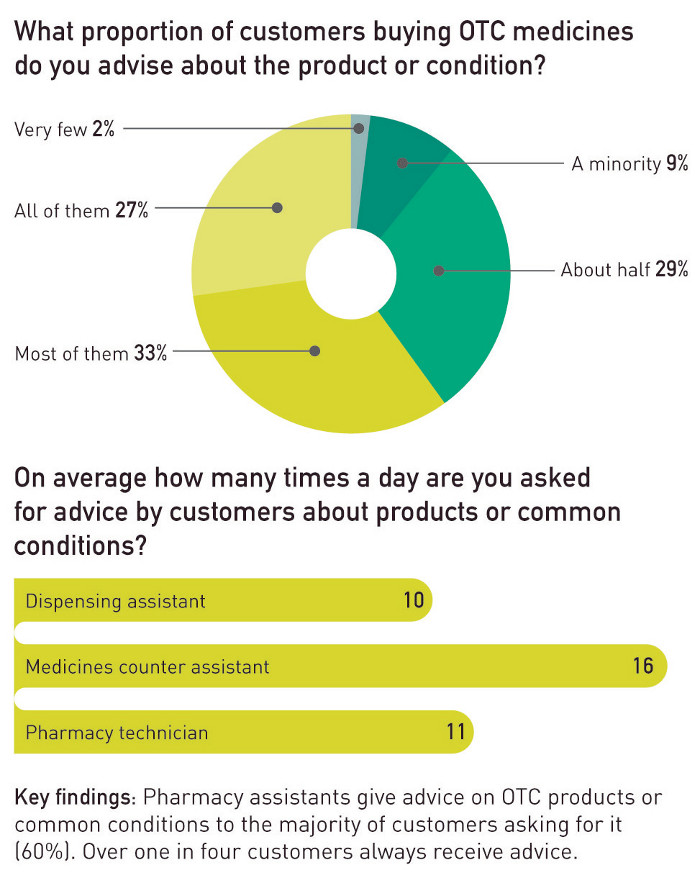In-depth

The SMART training survey
In In-depth
Bookmark
Record learning outcomes
Over 230 people responded to the SMART survey on OTC medicines training, of whom over 40 per cent were medicines counter assistants (MCAs), a third were pharmacy technicians and just under a quarter were dispensing assistants. There was a good spread between the various sectors, with just over 40 per cent of respondents saying they worked in an independent pharmacy, 36 per cent stating their place of work was a regional multiple or supermarket, and just under a quarter being employed by a major multiple.
MCAs were – unsurprisingly – the group most frequently asked by customers for advice on products or common conditions, averaging over 15 consultations per day, but technicians and dispensers weren’t far behind, with 11 and 10 per day respectively. Three in five respondents claimed to provide advice to all or most customers buying OTC medicines. Just under a third said they provided the service to around half these customers, with nine per cent saying that they advised a minority, and two per cent “very few†of their OTC customers. Four in five respondents cited “listening to what the customer is telling me†as the most important factor influencing product recommendation, but confidence in a medicine as a result of training, and positive experience of using a particular product – whether personal or as a result of someone else’s feedback – also scored highly.
A customer requesting a specific item was the most commonly mentioned barrier for OTC recommendations, with product cost and lack of training also significant. Training was the focus of several survey questions, with staff typically spending over an hour a week engaged in learning and rating it as nine out of 10 for how seriously they take it. Two out of three said they were expected to undertake training in their own time, with in-store information, magazines, manufacturersupplied materials and face-to-face the most commonly used formats. Online training has increased in popularity, but lack of internet access was named as an issue by many respondents.
Did you know?
- The preferred location for pharmacy assistants to carry out their training is a combination of work and home (51 per cent)
- Over half of pharmacies (53 per cent) have someone responsible for training in their business
- 78 per cent of assistants are strongly encouraged or obliged to participate in training
- Two in three pharmacy assistants are expected to train in their own time
- On average, pharmacy assistants spend 4.8 hours a month on training (1.9 hours of which is protected time)
- Pharmacy assistants rate training nine out of 10 for how seriously they take it and eight out of 10 for its importance to their job satisfaction and career progression.

